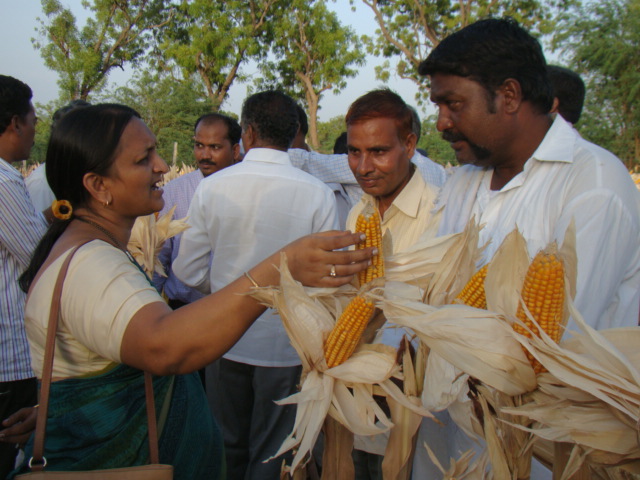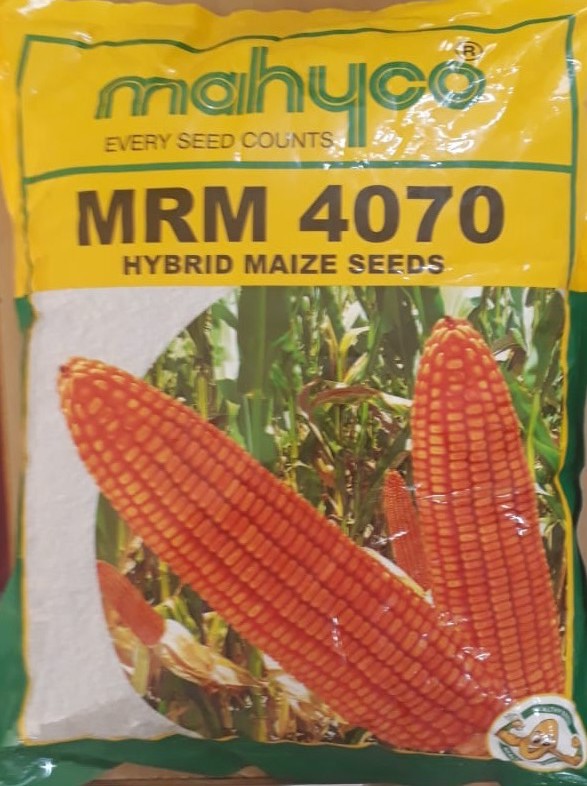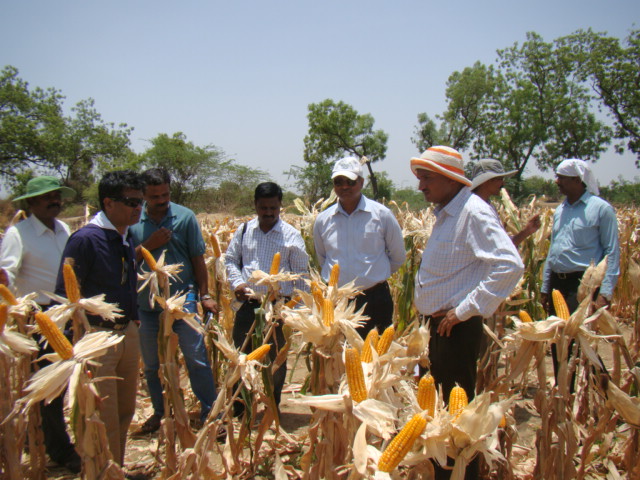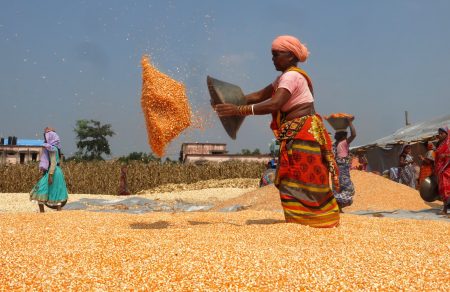
Small-scale maize farmers beset by erratic rainfall in the state of Karnataka, India, who adopted a new, drought- and heat-tolerant maize hybrid are harvesting nearly 1 ton more of grain per hectare than neighboring farmers who sow other maize varieties.
The climate-resilient hybrid RCRMH2 was developed in 2015 by the University of Agriculture Sciences, Raichur (UAS-R), Karnataka, as part of the Heat Tolerant Maize for Asia (HTMA) project. It was marketed in 2018 under the commercial name MRM4070 by Maharashtra Hybrid Seeds Company (Mahyco) in hot and dry areas of Karnataka, where crops are watered exclusively by rainfall.
“This hybrid is made for our stress-prone areas, as it gives guaranteed yields in a bad year and is inferior to none under good rainfall conditions,” said Hanumanthappa, a farmer and adopter of the variety in Gadag District. “In bad years, it can not only feed my family but also my cattle,” he added, referring to the hybrid’s “stay-green” trait, which allows use of the leaves and stems as green fodder for livestock, after harvesting the cobs.

Droughts and high temperatures are a recurring problem in Karnataka, but suitable maize varieties to protect yields and income loss in the state’s risk-prone agroecologies had been lacking.
Mahyco marketed some 60 tons of hybrid seed of MRM4070 in Karnataka in 2018 and, encouraged by the overwhelming response from farmers, increased the seed offering to 140 tons — enough to sow about 7,000 hectares.
A 2018-19 farmer survey in the contrasting Gadag District — with poor rainfall — and Dharwad District — good rainfall — found that farmers in Gadag who grew MRM4070 harvested 0.96 tons more grain and earned $190 additional income per hectare than neighbors who did not adopt the hybrid. In Dharwad under optimal rainfall, MRM4070 performed on a par with other commercial hybrids.
In addition to providing superior yields under stress, MRM4070 had larger kernels than other hybrids under drought conditions, bringing a better price for farmers who sell their grain.

Led by the International Maize and Wheat Improvement Center (CIMMYT), in collaboration with national maize programs, agriculture universities, and seed companies, and with funding from the United State Agency for International Development (USAID) Feed the Future Initiative, HTMA was launched in 2012 to develop stress-resilient maize hybrids for the variable weather conditions and heat and drought extremes of Bangladesh, India, Nepal and Pakistan.

 Capacity development
Capacity development